Newsletter
Only good movies
Get the Indie Focus newsletter, Mark Olsen's weekly guide to the world of cinema.
You may occasionally receive promotional content from the Los Angeles Times.

The Academy of Motion Picture Arts and Sciences rarely invites film critics to join its ranks — and thank heavens for that. The debate about which movies matter (and why) has more spark when our camps disagree. Here’s what I’m rooting for on Sunday, as well as some of the outstanding work this year’s voters missed.
“American Fiction”
“Anatomy of a Fall”
“Barbie”
“The Holdovers”
“Killers of the Flower Moon”
“Maestro”
“Oppenheimer”
“Past Lives”
“Poor Things”
“The Zone of Interest”
Should win: “Barbie.” “Barbenheimer” dominated the year, but the awards season’s nuclear heat has swirled solely around Christopher Nolan. Barbie can do anything — except, as it turns out, broaden the academy’s idea of a best picture winner. What would you say if someone told you to describe an “Oscar movie”? If your mind immediately flashed to a period piece, then the possibilities have become too narrow (and we need to blow them up). Original, incisive, hilarious and emotional, “Barbie” brought audiences to sniffles when its idol sacrificed perfection to become a complicated mess more like, well, me and the millions of other moviegoers with whom Greta Gerwig’s blockbuster resonated. When the dust settles, the plastic doll will endure.
Should’ve been a contender: “May December.” A tabloid villain squares off against a soul-sucking actor. A damaged young father is coerced to referee. Todd Haynes’ discomfiting melodrama shines a light into the spidery crannies of human behavior. Instead of clarity, he finds more darkness. Frankly, I’m surprised those Hollywood types didn’t connect with this bleak sendup of their own quest for cinematic truth.

Justine Triet, “Anatomy of a Fall”
Martin Scorsese, “Killers of the Flower Moon”
Christopher Nolan, “Oppenheimer”
Yorgos Lanthimos, “Poor Things”
Jonathan Glazer, “The Zone of Interest”
Should win: Glazer. Just when we’ve assumed that directors have explored the Holocaust from every possible perspective, Glazer’s sparse family drama finds an angle that’s quite literally too close to home. By filming his cast with hidden cameras and microphones, Glazer elevates the fly-on-the-wall techniques of “Survivor” and “Big Brother” into his own arthouse-horror hybrid. His control keeps us riveted on the traumatic history happening just out of sight. Back in our own morally draining present day, we have a new awareness of our urge to avert our eyes from the suffering that surrounds us on sidewalks, headlines and television news. The irony is sickening.
Should’ve been a contender: Lila Avilés, “Tótem.” It’s a young father’s birthday and he’s upstairs dying of cancer while his 7-year-old daughter roams a house filled with aunties, opinions and charred smoke from a forgotten cake. Avilés takes a story about death and stuffs it with life. Seen through the child’s eyes, the bustle is overwhelming. (What a performance Avilés pulls from first-time actor Naíma Sentíes.) With just two features, Avilés has become the darling of the international film festival circuit. Time for the academy to pay attention.
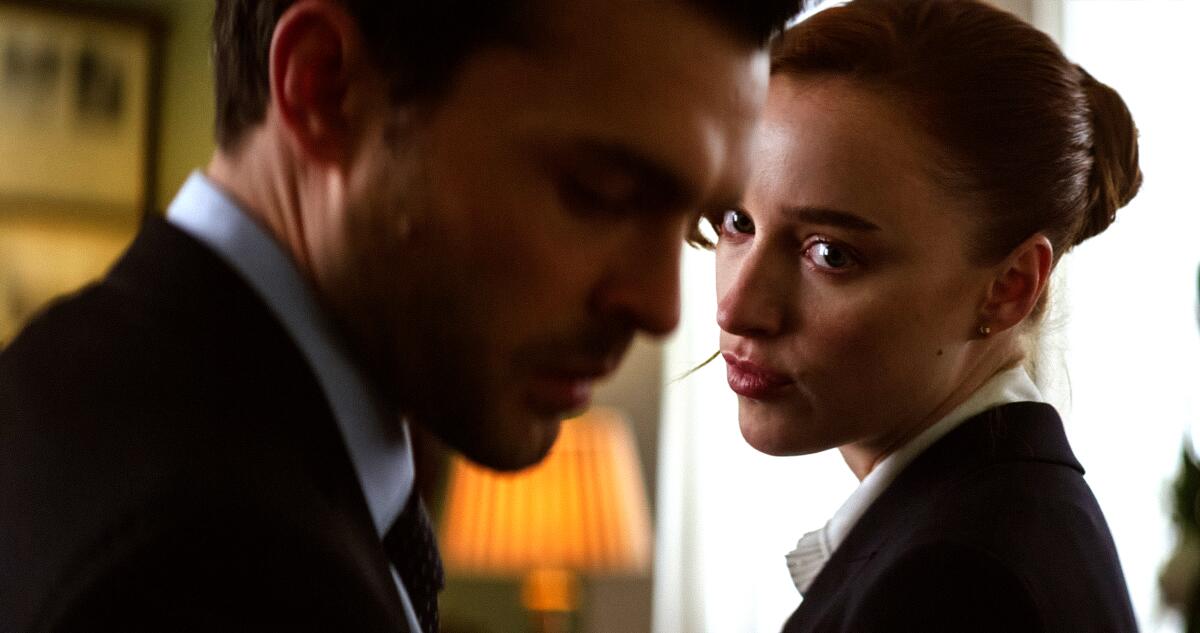
Annette Bening, “Nyad”
Lily Gladstone, “Killers of the Flower Moon”
Sandra Hüller, “Anatomy of a Fall”
Carey Mulligan, “Maestro”
Emma Stone, “Poor Things”
Should win: Stone. Nothing embarrasses Bella Baxter, the toddler-brained dervish of Yorgos Lanthimos’ “Poor Things.” And if Stone blushed as she flung herself across a dance floor and discovered the erotic potential of Bella’s fully adult body, you’d never know it. Any other year, any other one of these lead performances could warrant a win. But this Oscar belongs to Stone for charting the arc of Bella’s physical, intellectual and moral growth with the precision of an astronomer. Oh, and she filmed her scenes out of order. That’s galaxy-brained.
Should’ve been a contender: Phoebe Dynevor, “Fair Play.” It’s fitting that the “Bridgerton” actor was overlooked by the academy. In “Fair Play,” Dynevor excels as an ambitious financial analyst underestimated by almost everyone, most brutally, by her colleague and hush-hush fiancé (Alden Ehrenreich). No one leaves Chloe Domont’s wonderfully wicked debut unscathed. That’s due to Dynevor’s hard-charging heroine, who not only refuses our pity but gives as good as she gets.

Bradley Cooper, “Maestro”
Colman Domingo, “Rustin”
Paul Giamatti, “The Holdovers”
Cillian Murphy, “Oppenheimer”
Jeffrey Wright, “American Fiction”
Should win: Wright. If Buster Keaton were still alive to vote in the Academy Awards, he’d point to Wright’s stone face in “American Fiction” and say, “That! That is how it’s done.” Wright might never surf the fender of a moving train, but he’s nailed how to make audiences see the churn inside a stubborn literature professor who buries his emotions under concrete. What a treat when he finally starts to crack.
Should’ve been a contender: Sterling K. Brown, “Biosphere.” I’m glad Brown has been recognized for his standout supporting performance in “American Fiction” as Wright’s coked-up brother who is one bender away from a breakdown. But he was even better alongside Mark Duplass in Mel Eslyn’s zigzagging two-hander about the sole survivors of a global catastrophe. Without giving away the plot, let me just say that Brown invents — yes, invents — emotions never before seen onscreen. Most people never even saw this movie. They should.
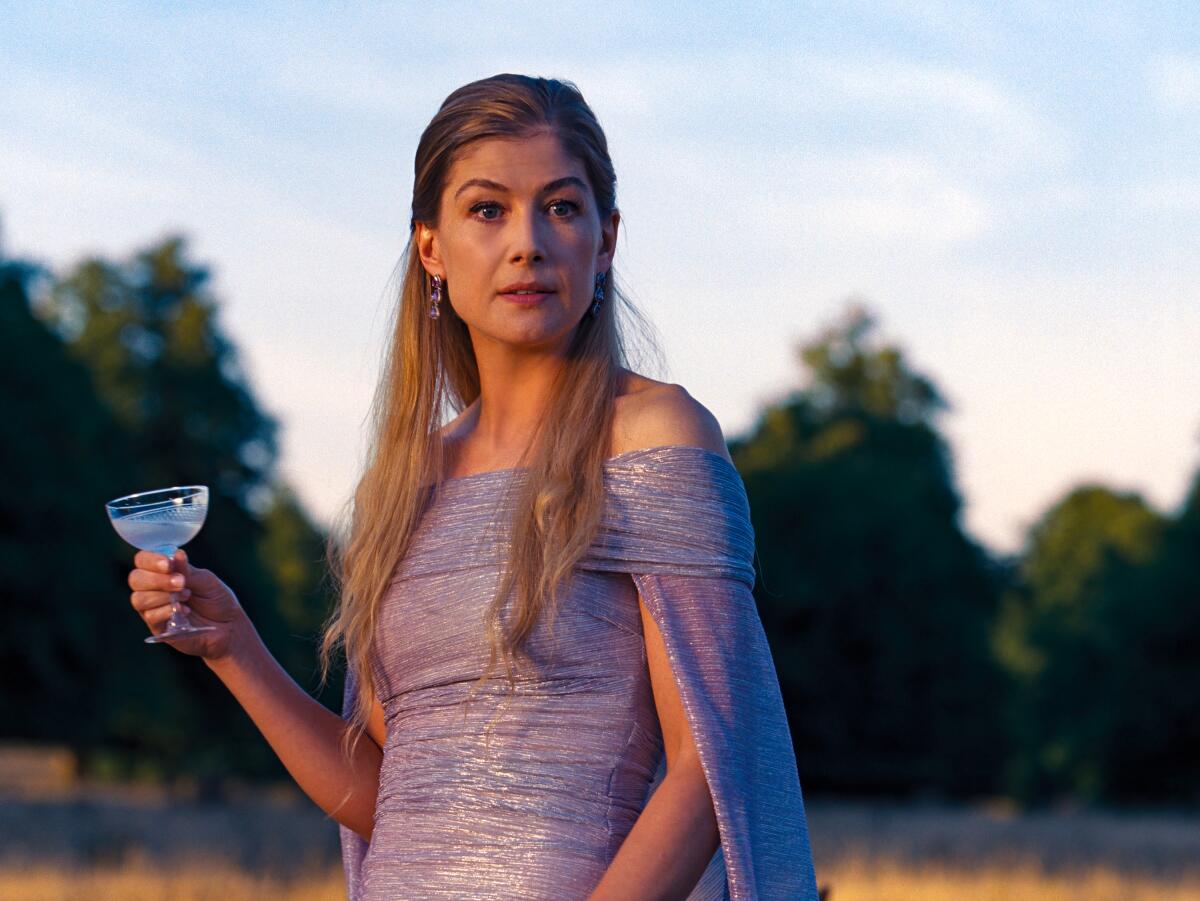
Emily Blunt, “Oppenheimer”
Danielle Brooks, “The Color Purple”
America Ferrera, “Barbie”
Jodie Foster, “Nyad”
Da’Vine Joy Randolph, “The Holdovers”
Should win: Randolph. The only shocking thing about Randolph’s victory is the realization that only five years have passed since her breakout performance in “Dolemite Is My Name.” Her ascendance feels inevitable, but let’s not rush celebrating the complexities of her grieving boarding-school employee, Mary Lamb, whose muted nuance contrasts marvelously with Paul Giamatti’s raging classics teacher. While he can’t escape himself — heck, he can’t even quit wearing sweater vests — Randolph changes subtly from scene to scene, revealing the different shells Mary uses to protect herself, whether at work, at a party or in a confrontation with a waitress who refuses to serve her cherries jubilee. Let Paul rage that the restaurant is a “fascist hash factory.” Mary paints on a smile and seizes the reward she knows she deserves.
Should’ve been a contender: Rosamund Pike, “Saltburn.” However, I also wish the Oscars would have hailed a creation that’s all surface. Pike’s Lady Elspeth is like the British estate she roams: rich, dazzling and vacuous. She’s also the funniest movie monster of the year. Gossiping about her daughter Venetia’s eating disorder, Lady Elspeth laments that bulimia didn’t even make the girl lose weight. “Complete waste of time,” she sighs. Jane Austen wrote takedowns of this kind of ninny two centuries ago — how fun to see Pike update her twit to the post-Y2K era.
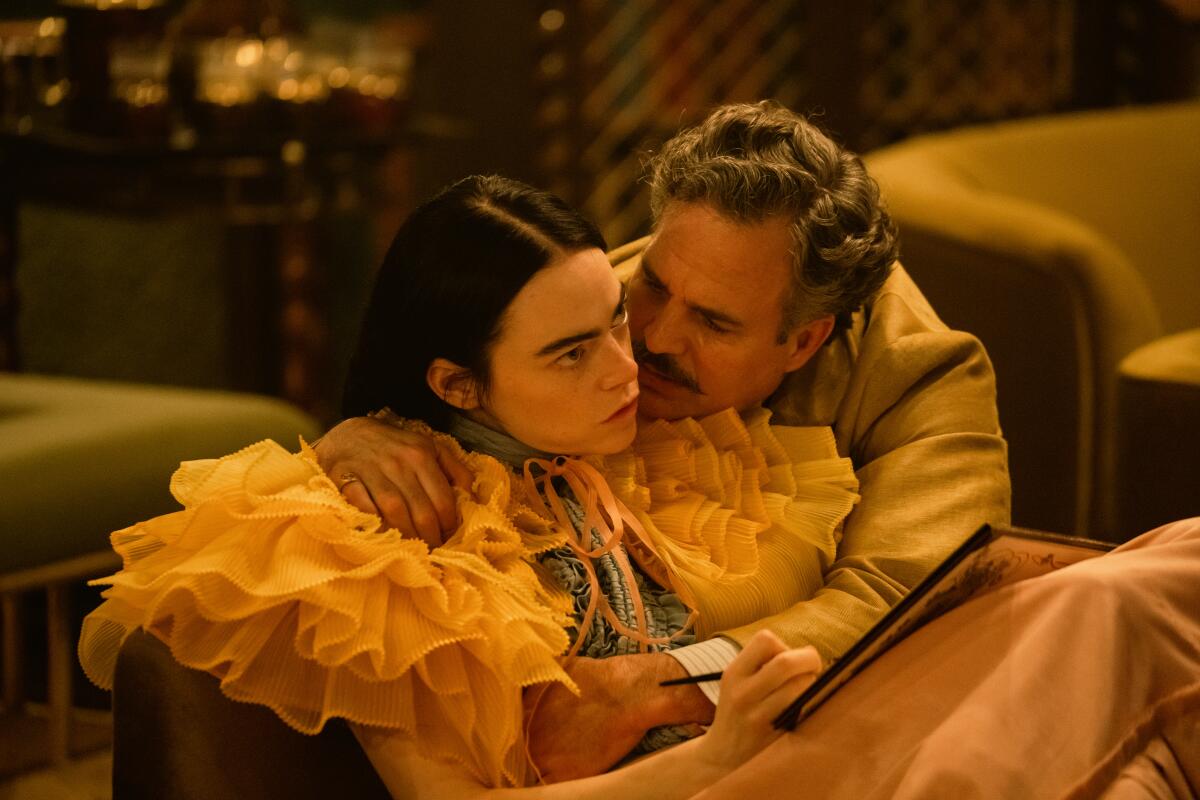
Sterling K. Brown, “American Fiction”
Robert De Niro, “Killers of the Flower Moon”
Robert Downey Jr., “Oppenheimer”
Ryan Gosling, “Barbie”
Mark Ruffalo, “Poor Things”
Should win: Ruffalo. This contest comes down to Iron Man versus the Incredible Hulk. Both Downey and Ruffalo have had their public image gobbled up by Marvel’s star-swallowing orbit, and they’ve clearly been itching to remind people of the talent under the pixels. Of the pair, I’m rooting for Ruffalo as the cocky predator of “Poor Things” who slowly catches on that he’s out of his depth, like a great white shark forced to Jell-O wrestle. Still, I won’t whine if Gosling’s Ken steals this category just like he stole “Barbie.”
Should’ve been a contender: Nicholas Galitzine, “Bottoms.” Let’s also crack a brewski for this year’s other magnificent doofus, Galitzine, who played the philandering quarterback in Emma Seligman’s frenzied high school satire. Handsome and popular, his bad boyfriend would be a stock cad in any other movie. But Galitzine’s daffy line readings keep making you do a double take. Is this jock OK? He doesn’t seem OK. And what does it say about his classmates that they’re too superficial to even notice?

Cord Jefferson, “American Fiction”
Greta Gerwig and Noah Baumbach, “Barbie”
Christopher Nolan, “Oppenheimer”
Tony McNamara, “Poor Things”
Jonathan Glazer, “The Zone of Interest”
Should win: “American Fiction.” I wonder when, in Jefferson’s process, he grappled with the bear trap inside Percival Everett’s 2001 novel “Erasure.” That book, like Jefferson’s script, hinges on a Catch-22. A Black author named Monk yearns to write about more than his skin color — but to do so, he has to point out the bigotry that’s locked him in a box. Smartly, Jefferson chose to keep (and update) the satire while building out the moments of Monk’s life that have nothing at all to do with race, particularly a romance he’s expanded from brief to heartbreaking.
Should’ve been a contender: Ariela Barer, Jordan Sjol and Daniel Goldhaber, “How to Blow Up a Pipeline.” Three years ago, Swedish academic Andreas Malm published an incendiary paperback that insisted that strategic nonviolence is unlikely to do much to save the planet. The screenwriting team of Ariela Barer, Jordan Sjol and Daniel Goldhaber transformed his call to action into a nail-biting thriller. One part manifesto, one part micro-budget “MacGyver,” this screenplay puts Malm’s arguments into the mouths of eight young activists who’ve convened in West Texas to pull off the film’s title. “How to Blow Up a Pipeline” doesn’t assume the audience will agree with these climate crusaders, but it wants us to hear them out.

Justine Triet and Arthur Harari, “Anatomy of a Fall”
David Hemingson, “The Holdovers”
Bradley Cooper and Josh Singer, “Maestro”
Samy Burch, “May December”
Celine Song, “Past Lives”
Should win: “Anatomy of a Fall.” Every relationship is buttressed by tiny compromises. We might even sacrifice more than we’re aware. Triet and Harari’s script drags one wife’s choices into a courtroom and invites us to pass judgment. Sandra is on trial for murder. On the stand, however, it sounds more like Sandra’s on trial for being wishy-washy, frustrated and occasionally callous. The more she defends the rationalizations that rotted away her marriage, the more illogical she sounds — and if that’s a crime, we’ve all been guilty.
Should’ve been a contender: Kelly Reichardt, “Showing Up.” Kudos to Reichardt for this unvarnished portrait of the creative process. Lizzy, a Portland sculptor, struggles to mount her next show. After days of agony, success is a room of people glancing at Lizzy’s work while stuffing their gullets with cheese. You want to turn to Reichardt and ask: What’s the point of all this stress if no one else cares? I suspect she’d smile and reply, Yes, what is the point? Art exists because it must.
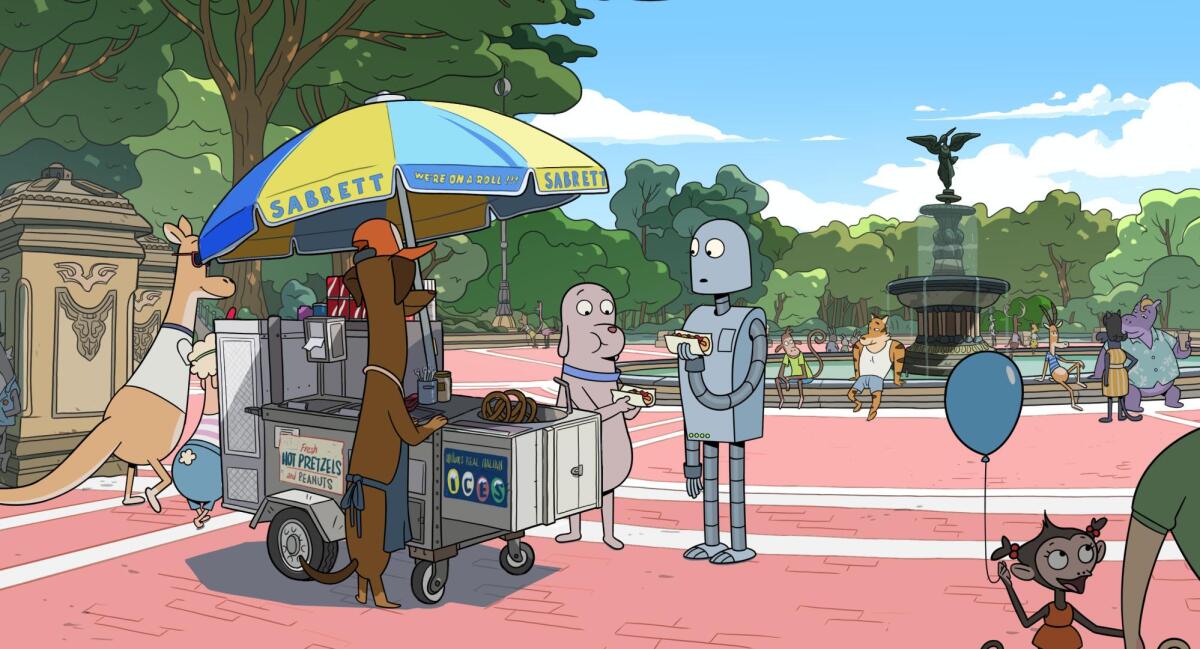
“The Boy and the Heron”
“Elemental”
“Nimona”
“Robot Dreams”
“Spider-Man: Across the Spider-Verse”
Should win: “Robot Dreams.” Don’t get thrown off by the blocky animation. This wordless bromance between a dog and a robot is anything but simple. What starts as a cutesy balm to friendship evolves into a wrenching saga of loneliness, loss and hope. Writer-director Pablo Berger is new to cartoons. Perhaps that’s why his images are at once blunt and inventive, like when he frames a sidewalk scene from inside a tarot reader’s window just because he can.
Should’ve been a contender: “Teenage Mutant Ninja Turtles: Mutant Mayhem.” “Spider-Man: Across the Spider-Verse” earned its slot as the series that freed Hollywood animation from its post-“Toy Story” pixelated sheen. But “TMNT” deserved to be in the mix too. Its scruffy cross-hatching, dazzling lighting and punkish energy indicate an official shift from realism to expressionism. (I hope!) One blockbuster franchise? That’s innovative. Two blockbuster franchises? Let’s throw a pizza party.
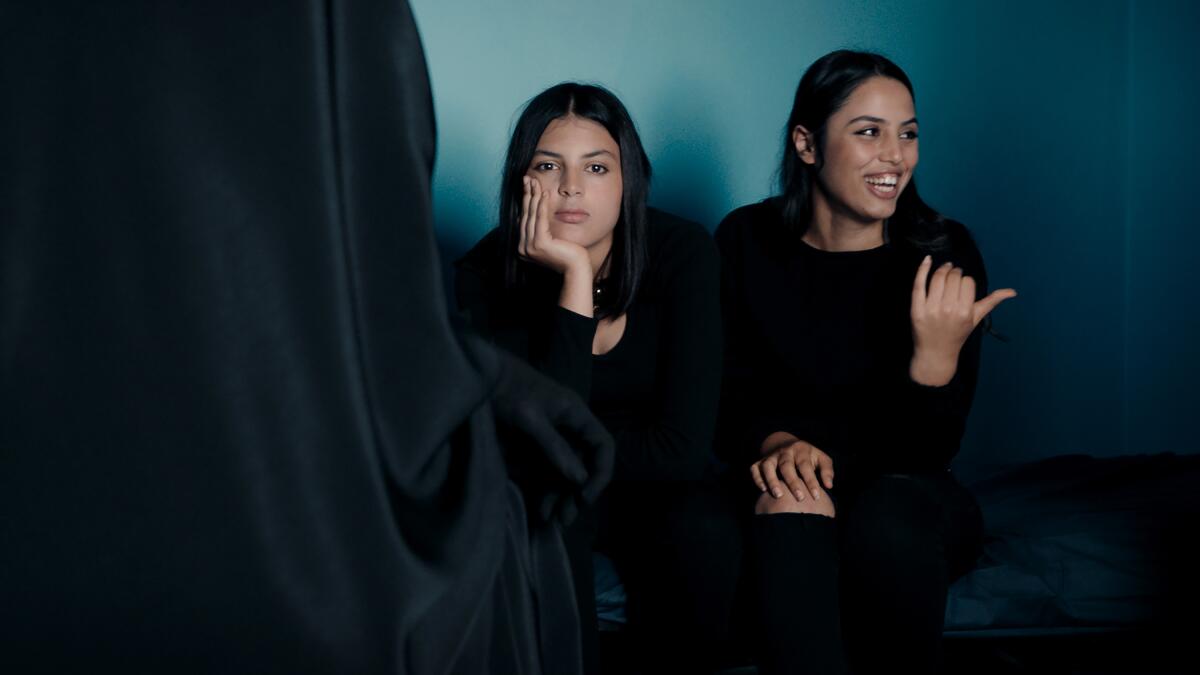
“Bobi Wine: The People’s President”
“The Eternal Memory”
“Four Daughters”
“To Kill a Tiger”
“20 Days in Mariupol”
Should win: “Four Daughters.” Often, this category is a face-off between substance and style. What’s worthier: the news story that matters now or the storytelling that pushes documentary filmmaking into the future? While I admire the dogged dispassion of “20 Days in Mariupol” — perhaps the only strategy able to withstand Vladimir Putin’s propaganda machine — “Four Daughters” is the rare nominee that excels as both advocacy and art. Tunisian director Kaouther Ben Hania invites herself into a home torn apart by teenage rebellion and a theocratic revolution, bringing along actors to fill in for its missing members. As the family restages its feuds, acting becomes group therapy. What I’ll remember aren’t the sobs but the nervous giggles.
Should’ve been a contender: “The Mission.” You might already have an opinion about John Chau, the 26-year-old American missionary who died attempting to bring Christianity to an isolated island tribe. Amanda McBaine and Jesse Moss’ absorbing film peels away the polarizing headlines about colonialism, radical evangelism, martyrdom and faith to investigate what — and who — encouraged this surprisingly level-headed young man to paddle toward his own death. Whatever your own beliefs, this movie will shake them.

“Io Capitano”
“Perfect Days”
“Society of the Snow”
“The Teachers’ Lounge”
“The Zone of Interest”
Should win: “The Teachers’ Lounge.” A schoolteacher films a thief stealing money from her wallet. Sounds like an open-and-shut case, but German director Ilker Çatak argues that the rules of integrity are as flimsy as the rules of surviving a horror flick. At every turn, he makes it impossible for his hapless heroine to do the right thing — or even know what the right thing is. Meanwhile, the film’s minimalist score scrapes away at your bones until all you can do is laugh. This movie is why the Germans invented the word schadenfreude. If you haven’t caught “The Teachers’ Lounge” yet, it’d make a great double feature with “Election.”
Should’ve been a contender: “Fallen Leaves” and “Unrest.” From Finland and Switzerland come two chilly films about the search for human compassion. “Fallen Leaves,” from Finnish auteur Aki Kaurismäki, is a deadpan rom-com that kicks around its leads until the very fact that they keep picking themselves up fills our hearts with hope. “Unrest” is colder still, a documentary-style rewind to a watch factory in 1870s Switzerland whose anarchist employees agitated for a better future that we know isn’t going to happen. Director Cyril Schäublin makes the past feel like it’s taking place right now on TikTok.
Only good movies
Get the Indie Focus newsletter, Mark Olsen's weekly guide to the world of cinema.
You may occasionally receive promotional content from the Los Angeles Times.